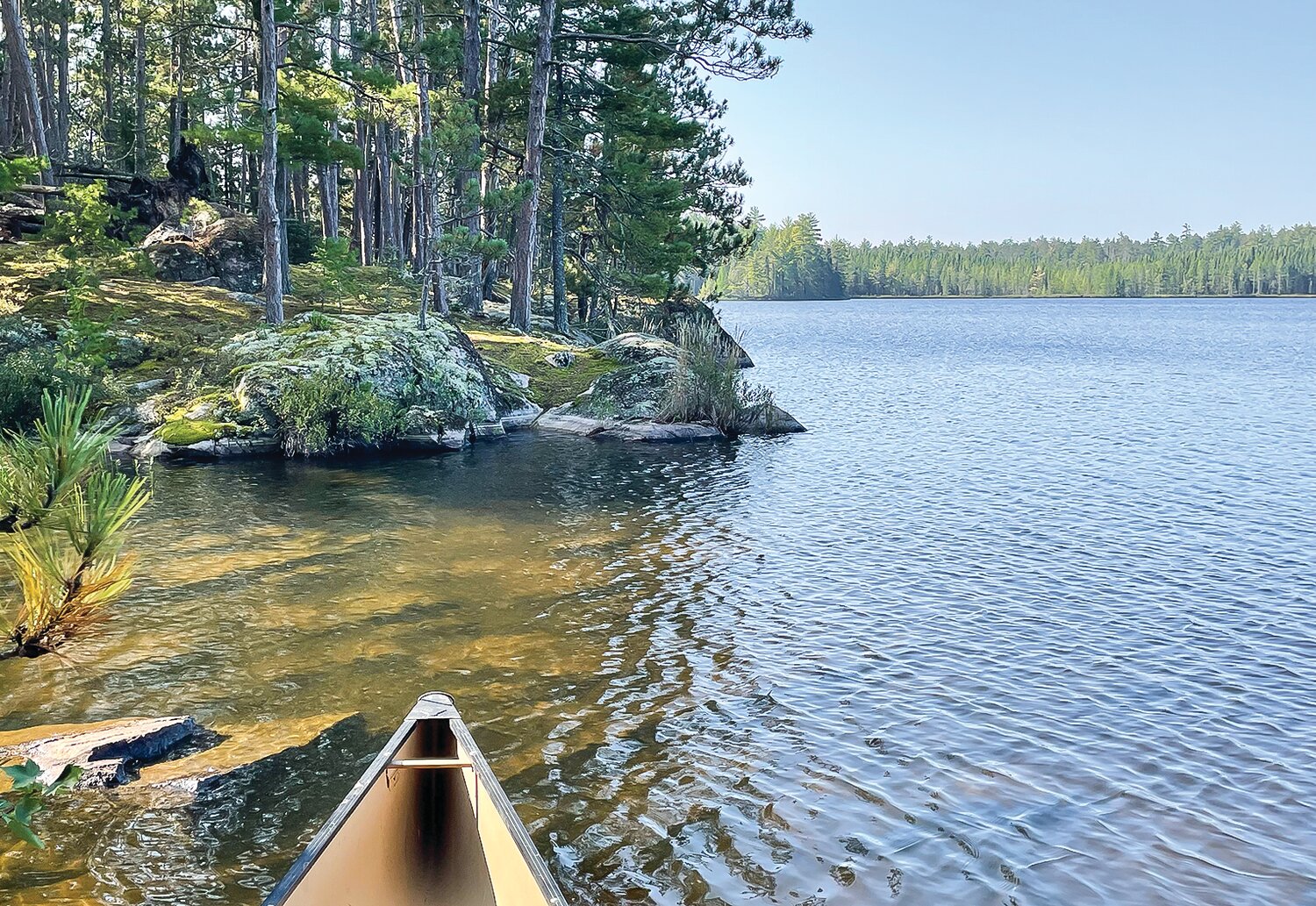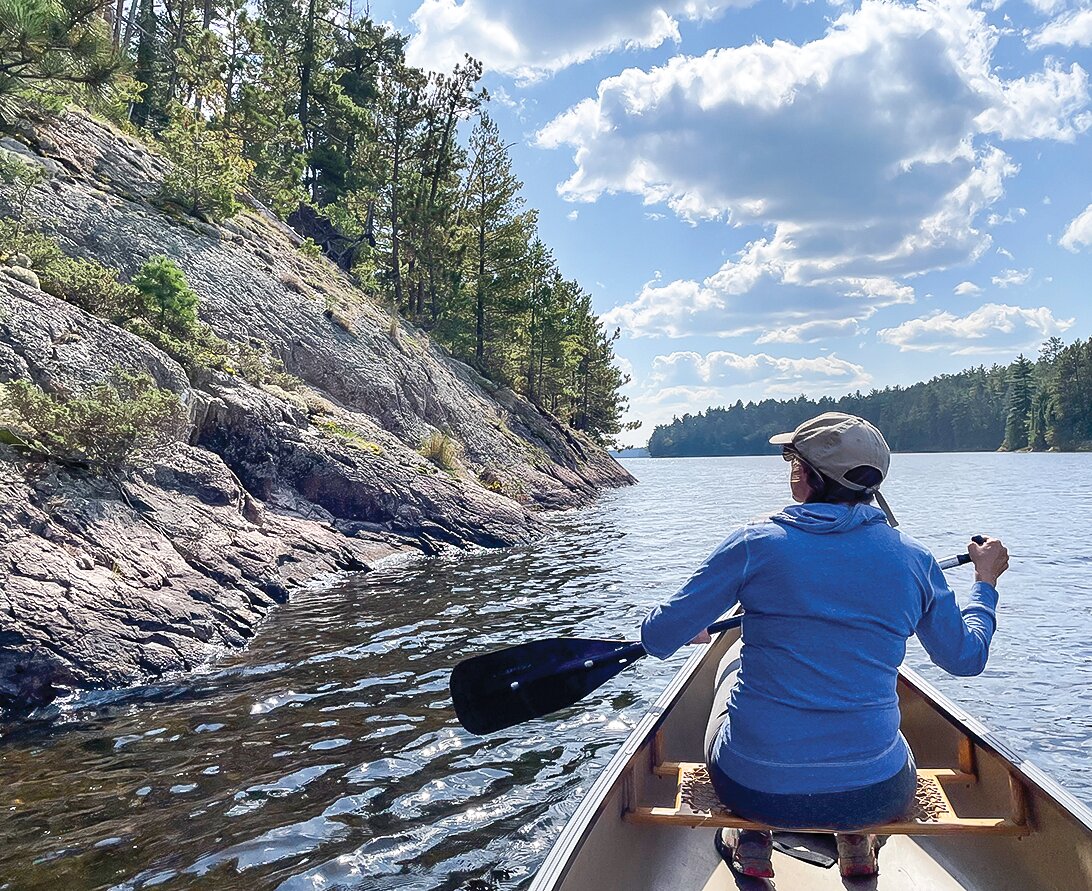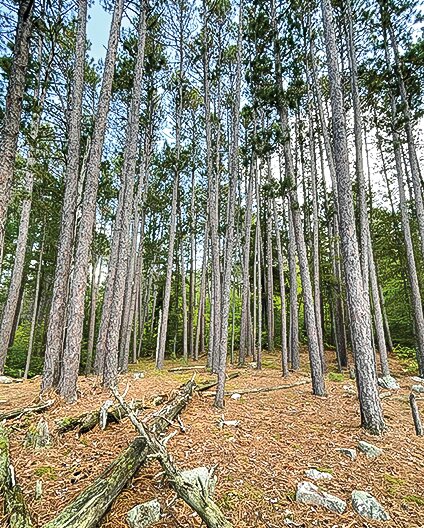Support the Timberjay by making a donation.
DOWN MEMORY LANE
A recent visit to the BWCAW offers a reminder of the way things change
THE BWCAW— It had been at least 25 years since my last visit to Little Rice Lake, the one found at the end of the 60-rod portage from Slim Lake, north of Burntside. It’s a shallow, …
This item is available in full to subscribers.
Attention subscribers
To continue reading, you will need to either log in to your subscriber account, or purchase a new subscription.
If you are a current print subscriber, you can set up a free website account and connect your subscription to it by clicking here.
If you are a digital subscriber with an active, online-only subscription then you already have an account here. Just reset your password if you've not yet logged in to your account on this new site.
Otherwise, click here to view your options for subscribing.
Please log in to continue |
DOWN MEMORY LANE
A recent visit to the BWCAW offers a reminder of the way things change
THE BWCAW— It had been at least 25 years since my last visit to Little Rice Lake, the one found at the end of the 60-rod portage from Slim Lake, north of Burntside. It’s a shallow, 110-acre lake that’s a bit murky as is typical of rice lakes, or perhaps more accurately, of former rice lakes.
A quarter century ago, back when my wife Jodi and I weren’t afraid to go after the hard-work rice, we used to rice this lake, mostly for its remarkably large kernels, the largest I’ve ever seen. To us, this unique quality made it worth the portage into Slim, a mile or so of paddling to the next portage, and then hauling our gear, plus 50-60 pounds of rice, back out again.
The rice on the lake was never thick, but it was thick enough most years on the lake’s west side that it was worth the effort given the quality of the rice. But gradually, like so many lakes, including numerous lakes in the Boundary Waters, the rice started to disappear. This past weekend, when a friend and I paddled across Little Rice on our way to Hook Lake, I found a total of six stalks of rice.
We know that, in some cases, rice can disappear as a result of competition from other aquatic vegetation, like pickerel weed or lily pads. In other cases, sulfate discharges from upstream mining operations have had an impact. That clearly hasn’t been the case in wilderness lakes like Little Rice, Lapond, or Hula, all of which have seen once reliable rice crops wither to near nothing. And, unlike some lakes, Little Rice has no detectable competition from other vegetation. I didn’t see lily pads or pickerel weed. It’s something else that is affecting the rice, a kind of systemic disappearance, one that is affecting lakes throughout most of the range of Zizania aquatica, otherwise known as mahnomin.
I don’t have an answer to this troubling trend, just a memory of when things were much different. Being in my 60s, those memories now go back a few years, long enough to know that the North Country is a much different place than it was back in 1984 when Jodi and I built our hand-hewn log cabin in the woods, which has been our home for the past 39 years.
Last weekend’s short venture into the wilderness is all that my life allows right now (caring for elderly parents consumes almost all of my free time), but it was useful as a means of reconnecting with the past, ground-truthing my memories so to speak.
We had some interesting experiences on Little Rice in those long ago visits there. Once, a couple older ricers from Ely screamed at us to go back to “The Cities” and quit taking their rice. We found their sense of entitlement amusing. Another time, the one other couple who showed up to rice that day decided to rice buck naked. We hadn’t encountered that before while ricing, since the tiny sharp hooks on the rice husks are irritating enough to the skin with all your clothes on. All we could figure is that couple must have itched for a week.
On the way in this past weekend, I was pleased to see that Slim Lake is as beautiful and clear as I had remembered it, and Hook Lake, which I had only ventured to twice before, was the same interesting rock pile that I recalled. I like that lake because it’s all but a dead end as far as canoe routes go. And, it’s found at the end of a 130-rod portage, so it’s not a place that attracts huge numbers of visitors. There was no one at the lake’s lone campsite, which wasn’t a surprise and we saw no one else on the lake that day.
It was a reminder of something that dawns on me every time I spend a day paddling in the wilderness: I don’t do this nearly enough. I’ll be back, and it won’t be 25 years the next time.











